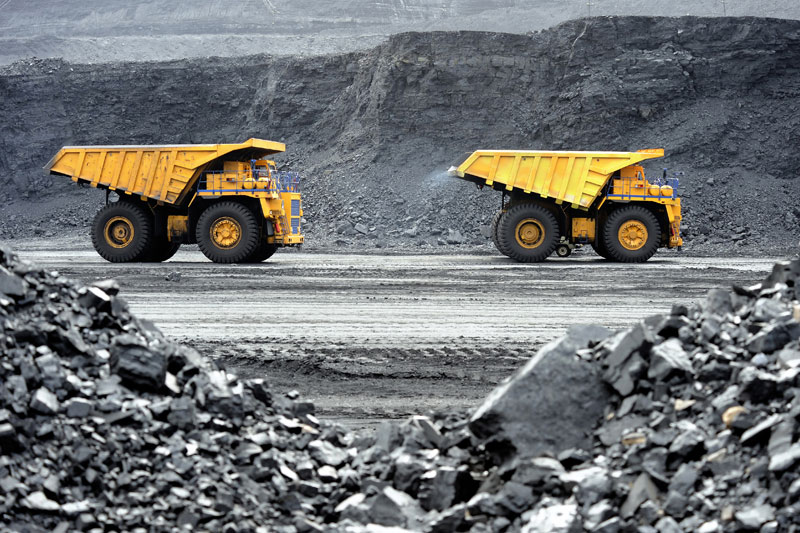By Valerie Volcovici
WASHINGTON, June 25 (Reuters) - U.S. coal mining companies are worried President Donald Trump's intensifying trade dispute with China could hurt their booming export business, one of the ailing sector's most important lifelines, according to industry players.
Beijing this month added coal and other energy products to a list of U.S. goods facing import tariffs in retaliation for Trump administration levies. The measure has already dampened Chinese demand for U.S.-mined coal, multiple U.S. and Chinese industry sources said.
For instance, trade sources said China National Building Material International, one of the biggest metallurgical coal importers in China, pulled back from supply talks with U.S. coal broker XCoal and miner Consol Energy CEIX.N shortly after Beijing's announcement.
A source familiar with the matter said Consol had been in talks with China to supply up to 1 million tons per year of metallurgical coal but would not confirm whether the deal would be delayed.
Officials at XCoal declined to comment.
"We're obviously watching it closely, particularly given what a bright spot exports have been for our industry of late," said Ashley Burke, a spokeswoman for the National Mining Association, which represents U.S. mining companies.
"Anything that would chip away at the appetite for U.S. coal abroad would be of concern."
The U.S. Energy Information Administration said U.S. coal exports to Asia doubled from 15.7 million tons in 2016 to 32.8 million tons in 2017. Exports to China totaled 3.2 million tons in 2017, up from zero in 2015 and 2016, according to the EIA.
The coal industry's concerns mirror the unease spreading in U.S. farm country over unintended consequences of the Trump administration's protectionist stance, which has roiled foreign market for American crops. The farm and coal industries are critical Trump supporters that the president and his Republican party are relying on to help them retain control of Congress in the mid-term elections in November.
"WALKING A TIGHT ROPE"
Steve Roberts, president of the West Virginia Chamber of Commerce, said Trump's protectionism was a "dilemma" for his organization, which represents a number of companies benefiting from the export trade.
"Because of our small population, we export far more than we consume," he said.
"We are concerned about the momentum slowing down... We are literally holding our breath to make sure this dispute is part of a bigger picture... and the parties see the advantage of trade with each other."
Jason Bostic, vice president of the West Virginia Coal Association, said he hoped the dispute would blow over, or at least that the Trump administration's steel and aluminum tariffs would boost domestic demand for metallurgical coal. U.S. demand for met coal is currently about 23 million tons a year, and could rise if U.S. steel manufacturing increases.
“We are walking a tight rope,” he said.
The addition of coal to the list of more than 650 items facing higher tariffs from China also came as a shock to Chinese steel mills and trading firms. Just last month, Beijing had been encouraging them to buy more U.S. coal to narrow the trade gap, four sources with knowledge of the plan said.
Coal operators like Pennsylvania's Consol had been in talks with Chinese buyers, and hope those talks revive.
"Long-term we think that coal will be part of the solution, with China buying U.S. coal to offset the trade deficit," said Zach Smith, a spokesman for Consol.
A number of Appalachian operators are banking on it.
In a May investor presentation, Corsa Coal CSO.V said it was aiming for 4 million tons per year of metallurgical coal sales by 2020 with 70 percent for export and 30 percent domestic. In its presentation, Corsa said Chinese and Indian infrastructure as well as a rising population were positive drivers for coking coal to serve growing demand for steel.
Corsa Coal did not respond to a request for comment.
Earlier this month, Bluestone Coal BSR.V , owned by the family of West Virginia Governor Jim Justice, announced it planned to hire 250 workers for two reopened mines and two new metallurgical mines in West Virginia. Some 70 percent of its coal is marketed for overseas export.
A representative for Bluestone could not be reached for comment.
